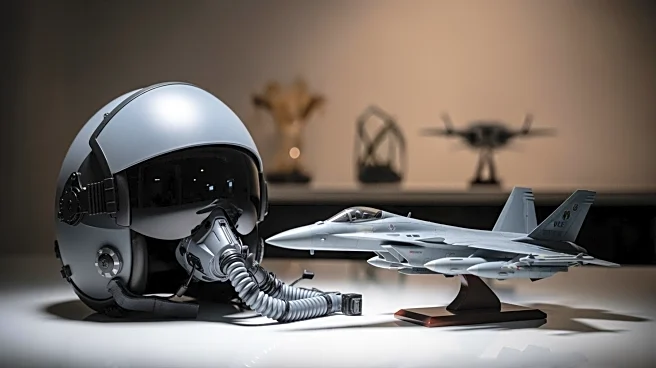What's Happening?
Romania has formally acquired 18 former Dutch F-16 fighter jets for a symbolic price of one Euro, with an additional VAT payment of 21 million Euros. These jets are now part of the European F-16 Training
Center (EFTC) in Romania, which is tasked with training both Romanian and Ukrainian pilots. The EFTC, located at the 86th Air Base near Fetești, plays a crucial role in preparing pilots to operate the F-16, also known as the Viper. This initiative is part of a broader effort to bolster NATO's eastern airspace defense and support Ukraine amidst ongoing conflicts. The transfer of these jets was facilitated by the Netherlands' transition to the F-35A, allowing the F-16s to be repurposed for training purposes.
Why It's Important?
The acquisition and use of these F-16s are significant for several reasons. Firstly, it strengthens NATO's defense capabilities on its eastern flank, a strategic area given the current geopolitical tensions. Secondly, it provides Ukraine with essential training resources to enhance its air force capabilities, crucial for its defense against ongoing threats. The EFTC's role in training Ukrainian pilots underscores the international support Ukraine is receiving, particularly from NATO allies. This move also highlights the strategic importance of Romania within NATO, as it becomes a central hub for pilot training and cross-border military cooperation.
What's Next?
Looking ahead, the EFTC will continue to train pilots, with a focus on maintaining a high standard of readiness for both Romanian and Ukrainian forces. As Romania plans to introduce the F-35 after 2030, the current F-16s may eventually be transferred to Ukraine, further strengthening its air force. Additionally, the ongoing training and cooperation at the EFTC are expected to enhance interoperability among NATO forces and Ukraine, contributing to regional stability and security.
Beyond the Headlines
The establishment of the EFTC and the transfer of F-16s to Romania reflect broader trends in military cooperation and resource sharing among NATO allies. This initiative not only addresses immediate defense needs but also sets a precedent for future collaborative efforts in military training and capability development. The involvement of private contractors like Draken International in the EFTC program also highlights the growing role of private entities in defense training and logistics.









